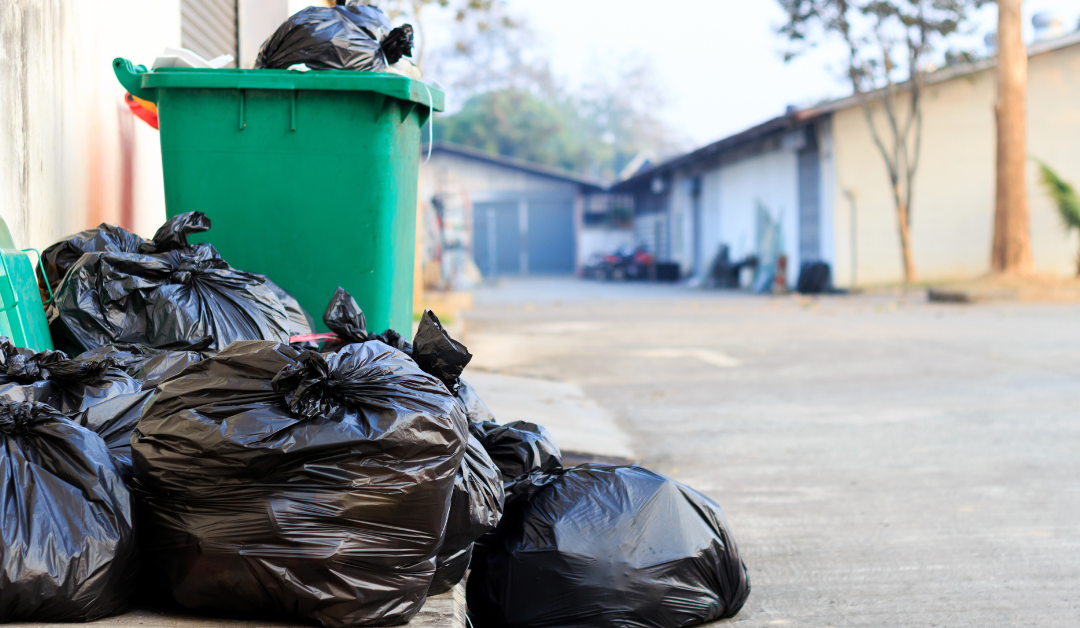The Importance of Using Trash Bags
Proper waste disposal begins well before the trash hauler arrives at your curb. One of the most important, yet often overlooked, steps in this process is placing your garbage inside trash bags before setting it out for collection. Using trash bags is a simple action that holds significant benefits for public health, environmental protection, neighborhood cleanliness, and operational efficiency. This blog post will delve into why incorporating trash bags as part of your waste disposal routine is essential and how this habit benefits not only your household or business but the entire community.
Why Use Trash Bags?
Trash bags are more than just containers for holding garbage. They serve as crucial barriers that keep waste contained and manageable throughout the collection process. Leaving trash unbagged invites a host of issues such as spills, unpleasant odors, pest infestations, and increased health risks. Meanwhile, bagged waste ensures safer, cleaner, and more efficient trash collection while supporting community health and sustainability goals.
Key Advantages of Trash Bags for Waste Management
The first major advantage of using trash bags concerns sanitation and hygiene. When trash is placed inside bags, liquids, food scraps, and other potentially harmful materials are securely contained. This containment helps prevent leakage that could otherwise occur inside trash bins or onto streets, reducing the risk of bacteria proliferation and odors that can attract pests. Without trash bags, waste can seep into the disposal bins and surrounding areas, fostering mold growth and creating health hazards for residents and waste collectors alike.
Another important benefit involves containment and litter control. Trash that is not bagged can easily scatter due to wind or be disturbed by animals such as raccoons, birds, and rodents. This results in litter spreading across streets, yards, and public spaces, leading to unsightly, unhygienic conditions and increased cleanup costs. Using trash bags prevents litter from escaping your bin and helps keep neighborhoods clean by ensuring all waste is securely enclosed until it reaches the landfill or recycling facility.
Odor management is a further advantage of bagging your waste. Food waste, diapers, and other organic materials can emit strong smells quickly. Trash bags are typically made from materials designed to trap these odors inside, helping to keep your home and curbside areas smelling fresher. This also reduces the likelihood of attracting pests that thrive in warm, smelly environments.
For both trash haulers and homeowners, using trash bags enhances convenience. Collectors find it easier and faster to pick up bagged waste because it can be securely grabbed and transferred into collection trucks without the risk of spilling. This efficiency reduces the time spent per pickup and minimizes messes that would require additional cleaning. Likewise, residents appreciate how bags simplify the process of gathering and carrying garbage from their homes to curbside.
Another key reason to use trash bags is protection against animals and pests. Unbagged garbage provides easy access for wildlife such as rats, squirrels, raccoons, and seagulls, which can scatter trash and create public health concerns. Bagged waste forms a sturdy barrier that deters these animals, preventing them from raiding bins and spreading waste around the neighborhood.
Using trash bags also helps maintain the cleanliness of your trash bins. Bins that hold unbagged garbage often become sticky, stained, and foul-smelling from leaks and residue buildup. This necessitates frequent and sometimes costly cleaning or replacement. When you use trash bags, you protect your bin and extend its useful life, making the overall waste management experience more hygienic and pleasant.
In many communities, local regulations require all garbage to be placed inside trash bags before collection. Failing to comply with these rules can result in fines or missed pickups. Beyond legal compliance, modern trash bags offer environmentally friendly options such as biodegradable and compostable bags—allowing residents to choose products that align with sustainability goals.
Common Mistakes to Avoid When Using Trash Bags
Even when using trash bags, certain practices can reduce their effectiveness. For example, filling bags excessively can cause them to break or spill, while underfilling them wastes material. It’s best to fill bags to a reasonable capacity that allows them to be securely tied without bursting. Properly tying bags closed is also essential to trap odors and prevent contents from escaping during handling.
Choosing the right bag for the type of waste you have is important. Heavy or sharp items require thicker or reinforced bags to prevent tears. Using lightweight bags for heavy refuse often leads to unwanted messes. Additionally, recyclable materials should generally not be placed inside plastic bags unless your waste management provider specifically allows it, as many recycling processes require loose, unbagged items for sorting.
If a trash bag becomes torn or starts leaking, replacing it immediately will help maintain cleanliness and prevent contamination.
Selecting the Appropriate Trash Bags
There is a wide variety of trash bags available, varying in size, thickness, material, and purpose. Selecting the correct bag depends on your specific waste needs. For example, kitchen trash often requires medium-sized bags with some odor control, while yard waste or construction debris might need large, heavy-duty bags with puncture resistance.
As environmental concerns grow, many consumers choose bags made from recycled materials or biodegradable polymers. These types of bags can reduce the environmental footprint of your waste disposal when used in accordance with local waste processing capabilities. When selecting bags, consider factors like ease of tying, durability, and resistance to odors to find the best fit for your household or business.
A Small Step With Big Impact
Using trash bags before disposal is a simple yet powerful practice that benefits everyone in the community. It ensures safer, cleaner, and more efficient waste collection while protecting public health and preserving neighborhood aesthetics. Incorporating trash bags into your routine is a responsible choice that supports compliance with local regulations and advances environmental stewardship.
Contact Mountz Disposal to learn more.
Stay up with the latest at Mountz Disposal by following us on Facebook.

